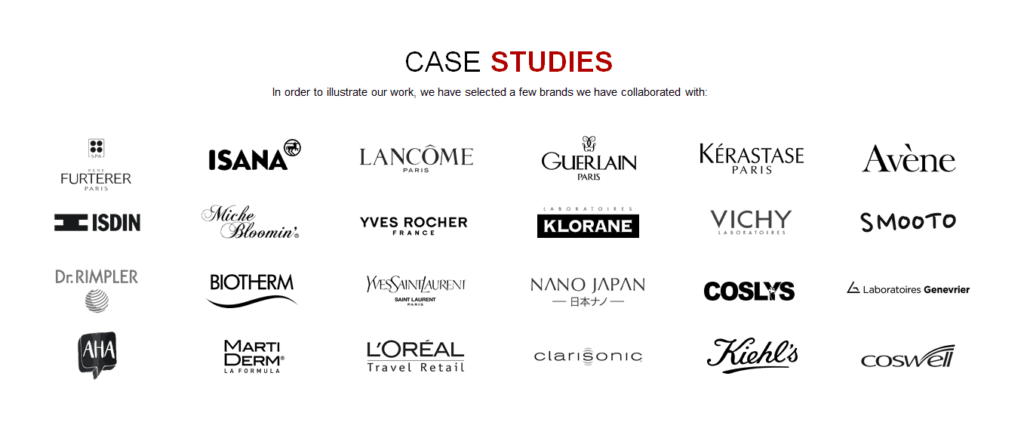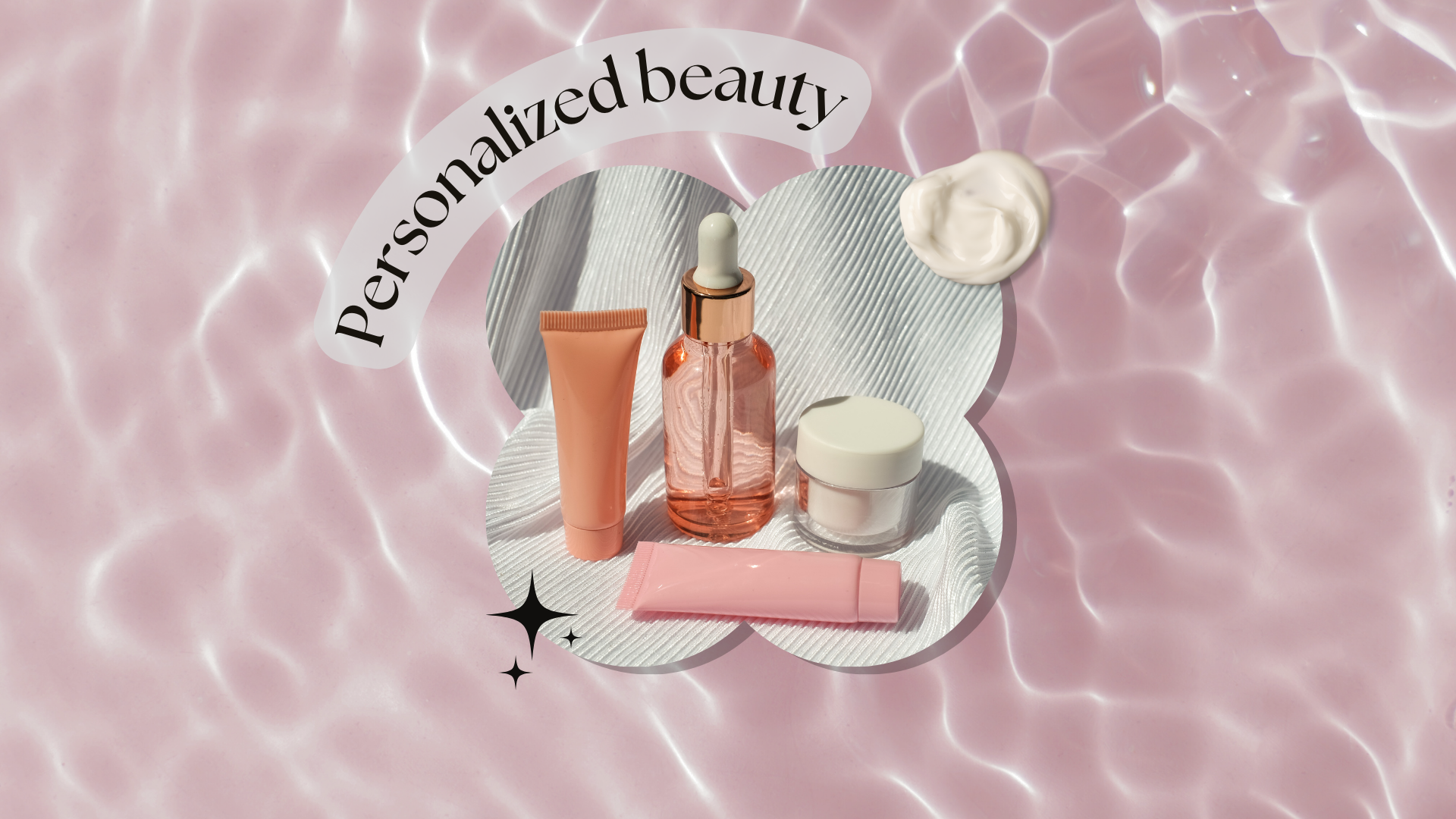Are you tired of searching for the perfect beauty products that cater to your unique needs? Well, you’re not alone.
Personalized beauty is changing the beauty industry by offering customized solutions to meet the unique needs and preferences of individuals. With the help of technology and increased demand for personalized products, beauty brands now provide tailored experiences and products that address individual concerns and goals.
This includes personalized skincare routines, customized makeup shades, and bespoke fragrance blends. This trend is revolutionizing the way we approach and enjoy beauty, allowing individuals to express themselves and feel more confident.
Key Takeaways
- Personalized beauty is revolutionizing the Chinese cosmetics market, with customized hair care, cosmetics, and skincare solutions gaining popularity among consumers.
- Brands can capitalize on this trend by offering tailored products that meet the specific needs and preferences of Chinese consumers. Leveraging technology such as AI, VR, and AR can enhance the customization process.
- Influencers play a crucial role in promoting personalized beauty in the Chinese market, with their opinions and recommendations impacting consumer trust and purchasing behavior.
- The future of beauty in China is data-driven and tailored to individual preferences. Embracing customization through technology and influencer partnerships can help brands differentiate themselves in the competitive market.
The Cosmetics Market in China

China’s beauty market is the second-largest in the world, in terms of sales and market shares. By 2024, cosmetics sales should reach 60 billion USD, and $87.64 billion by 2025 (564.40 billion RMB).
It is interesting to see that since 2012, in just ten years, the numbers doubled, even despite the ongoing pandemic, especially the lockdowns in 2022. The beauty industry in mainland China is a very promising one, especially the skincare market and it’s one of those, that are great for foreign brands, as Chinese consumers still value overseas beauty products far more than the domestic ones.

The fast growth of China’s cosmetics market (as it registers a CAGR of 14% year on year) can be attributed to the rise of the middle class and its appetite for all consumer goods, especially in the beauty and skincare industry in China.
But the fastest-growing channel for cosmetics sales in China by far is online retail.
E-commerce at the Heart of China Beauty Market
Chinese beauty consumers when looking to buy cosmetics products on the Internet are looking to save time and money. Actually, it’s much easier to buy online in China than in the West for example as the delivery (to only mention one point) is much faster.
Chinese consumers are as well very sensitive to prices and they will not hesitate to check products in physical stores and then buy them online if it’s cheaper.
But before buying any types of products they’ll look for information on the Internet. That’s why a brand must be present on social media, and forums (very popular in China) and work on its online branding.

Chinese consumers spend a significant amount of time online reviewing products and often base their purchasing decisions on recommendations from family and friends.
To gain Chinese consumers’ trust, a brand must increase its brand awareness, control its online image, and maintain a good online reputation. If bad comments appear online for a brand it can cause serious damage. And Internet word of mouth (IWOM) plays a role in the online purchase process.
Chinese Luxury Cosmetics Market
The Chinese luxury cosmetics market is growing rapidly due to changing market trends and consumer behavior. About 28% of Chinese consumers prefer to buy from premium brands, creating a significant demand for high-quality products.
The industry has diversified in recent years, with Gen-Z and male consumers seeking skincare tailored to their needs, creating opportunities for both domestic brands and international companies.
But International brands mainly occupy the high-end cosmetics market.
As China’s middle class’s purchasing power increases, there is expected to be a surge in interest in affordable luxury goods, making it a promising future for Western cosmetic brands.
The Rise of Personalized Beauty in China
Personalization plays a significant role in the beauty industry by offering customized solutions that cater to the unique needs and preferences of each individual. It goes beyond just making customers feel special, as it allows businesses to create personalized skincare and beauty products that bring customers closer to their ideal selves.
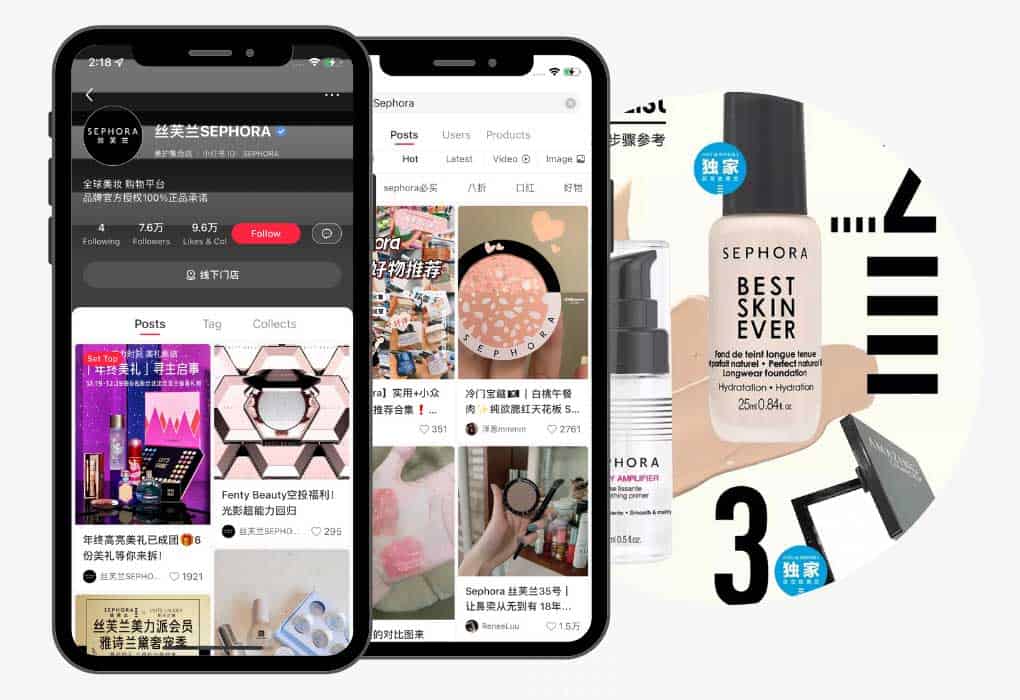
This trend has led to a shift in purchasing patterns, as today’s consumers seek tailored experiences that enhance their individuality. By offering personalized products and experiences, businesses can foster greater brand loyalty and promote customer satisfaction in the long run.
The transformative trend of customization in the cosmetics industry is gaining momentum worldwide, with an expected annual growth rate of 25.6% over the next decade. However, it is particularly prominent in China, where it is revolutionizing how people perceive and interact with cosmetics brands.
Personalized Hair Care
The appeal of personalized beauty has become increasingly popular in China, particularly with the growing demand for customized hair care solutions.
Brands like Function of Beauty have gained popularity by offering personalized hair care products that cater to individual needs and preferences. This trend is expected to continue, as the Hair Care Market in China is projected to grow at a significant rate of 4.1% CAGR by 2027.

Chinese consumers are increasingly inclined towards organic/natural and personalized options, seeking skincare products that align with their unique beauty preferences.
Customizable products in the beauty and personal care industry are revolutionizing the market in China. They are not just a passing trend, but a promising future for the industry.
Personalized Cosmetics
Customized cosmetic products are rapidly gaining popularity in China’s beauty industry, revolutionizing how companies interact with consumers, especially among Chinese women.
The demand for personalized beauty solutions is no longer limited to Gen-Z or male customers but extends to people of all demographics.
China’s appetite for cosmetic products has a distinctly global flavor. More than half of Chinese cosmetics consumers preferred foreign brands over local ones.
Skincare brands like SkinCeuticals, for instance, have obtained a license to offer on-site personalized beauty services in China, highlighting the increasing interest in these distinctive beauty offerings.
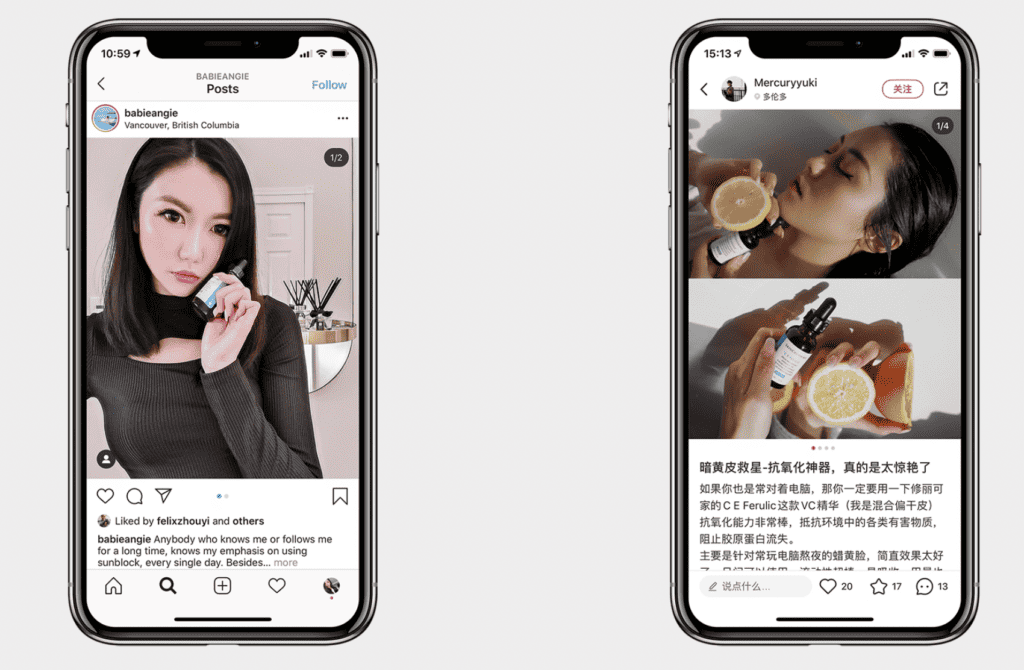
This trend is not expected to fade away quickly, as projections indicate that the Chinese Beauty & Personal Care market will reach a staggering US$76.91 billion by 2028, largely driven by the demand for bespoke cosmetics.
So if your brand wants a slice of this multi-billion dollar pie, you’ll need tailored makeup options that resonate with every consumer’s unique needs and desires.
Personalized Skin Care
Personalized skincare is becoming increasingly popular in the Chinese beauty market, presenting an opportunity for marketing managers to incorporate this trend into their strategies. Gen-Z consumers, in particular, are seeking customized skincare solutions that cater to their specific needs, such as addressing skin conditions or enhancing their natural features.
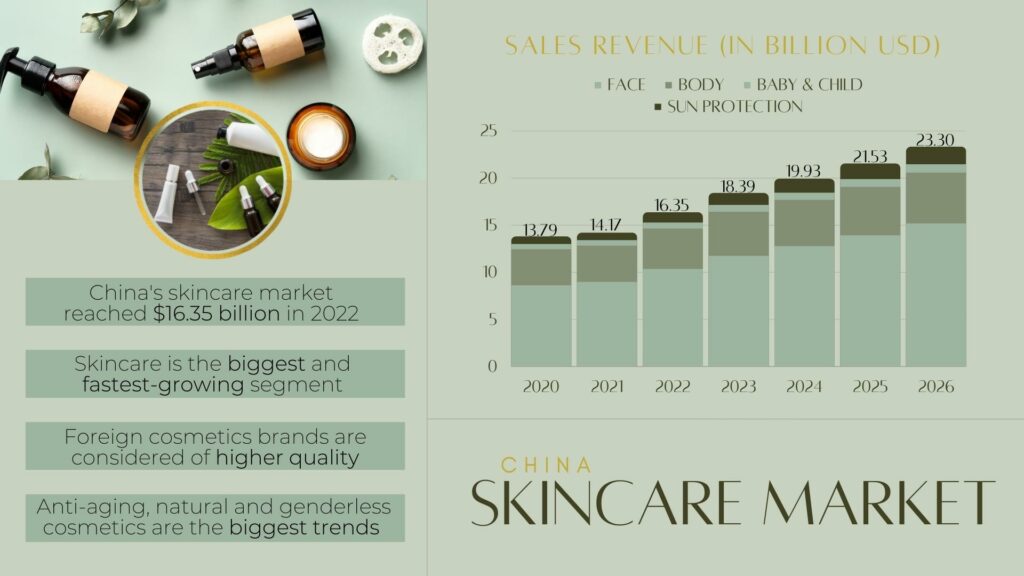
Influenced by Korean pop culture or K-Pop, the male skincare market is also expanding, highlighting the importance of offering diverse and personalized beauty services. Augmented reality technology is playing a crucial role in enabling personalization in the industry.
SkinCeuticals’ Shanghai store, for example, utilizes AR technology to provide on-site personalized services and data-driven skincare recommendations, making it the first of its kind with an approved production license.
The beauty industry is experiencing a shift towards hyper-personalized cosmetics, driven by tech-savvy companies and a desire to enhance user experiences.
The Impact of Personalized Beauty on Brands
Brands in the Chinese cosmetics market can capitalize on the personalized beauty trend by leveraging technology, partnering with influencers, and offering tailored products and experiences.
Find out how customization is transforming the industry. Read more to discover the opportunities it presents for brands.
How brands can capitalize on the personalized beauty trend in China
Having a solid understanding of the personalized beauty trend in China is crucial for brands looking to capitalize on this growing market.
To tap into this trend, brands should focus on offering customized and tailored beauty products that cater to the specific needs and preferences of Chinese consumers.
Leveraging technology is key, as it allows brands to collect data and create personalized skincare solutions or cosmetics based on individual consumer profiles.

Additionally, collaborating with influencers who align with the personalized beauty trend can help increase brand awareness and reach among target audiences. It’s the most efficient way to gain in popularity with your cosmetics brand in China.
Leveraging technology for customization
With advancements in AI, IoT, and virtual reality, personalized beauty experiences are becoming more accessible than ever before. Here are some ways brands can leverage technology for customization:
- Customized cosmetics: Beauty tech startups are using AI-driven algorithms to create personalized makeup formulas based on individual skin tones and preferences. Using virtual reality and augmented reality makeup simulations, customers can try different shades and finishes before making a purchase.
- Virtual reality beauty: Virtual reality platforms allow consumers to virtually test out different hair colors, makeup looks, and even skincare routines. This immersive experience helps users find products that suit their unique needs without the need for physical trial and error.
- Smart beauty devices: IoT devices such as smart mirrors and skincare analysis tools provide real-time data on an individual’s skin condition, allowing brands to recommend customized skincare regimens tailored to specific concerns.
- Augmented reality makeup: Brands are utilizing augmented reality apps that use facial recognition technology to apply virtual makeup onto a user’s face in real time. This allows customers to experiment with different looks without physically applying any product.
- AI-driven beauty products: Through the use of AI and deep learning algorithms, beauty brands can offer personalized product recommendations based on an individual’s preferences, skin type, and lifestyle factors.
The Role of influencers in promoting personalized beauty
Here are some examples to consider of the significant role influencers play in promoting personalized beauty in China:
Influencers are crucial in cosmetic brand marketing strategies
With up to 67% of buyers seeking information from social media influencers, partnering with them can significantly impact brand recognition, visibility and consumer trust.
Social media marketing drives personalized beauty trends
Influencers have a strong presence on various social media platforms, making their opinions highly influential among their followers. Leveraging these platforms can help brands reach a wider audience and generate interest in personalized beauty products. Among online channels, live streaming has rapidly grown into a major sales platform for skincare, makeup products etc.
Personalization aligns with the pursuit of individuality
Consumers are increasingly seeking products that cater to their unique needs and preferences. Influencers who promote personalized beauty products resonate with their followers’ desire for self-expression and individuality.
Data-driven choices enhance credibility
Customized beauty product offerings are based on the idea that data can assist customers in making informed choices. By collaborating with influencers who emphasize the importance of data-driven personalization, brands can enhance their credibility and attract discerning consumers.
Influence on purchasing behavior
Changes in purchasing patterns within the cosmetics market can be attributed to the influence of influencers. With 88% of consumers trusting recommendations from strangers on social media for beauty products, partnering with influencers is an effective way for brands to drive sales and increase market share.
We are your local partner in China! Contact us!
The rapid growth of customization in the Chinese cosmetics market is revolutionizing the industry. With personalized beauty gaining traction among consumers, brands have a unique opportunity to capitalize on this trend by leveraging technology and partnering with influencers.
Personalized skincare and makeup are no longer just trends – they are here to stay, transforming the Chinese beauty industry and satisfying individual preferences like never before. Also, in the skincare and haircare segments, male grooming products have been growing in popularity.
The future of beauty in China is personalized, tailored, and data-driven. Get ready for a new era of customized beauty experiences!
For international businesses, China is the most promising market for cosmetics in the world.

We are a China-based marketing agency offering cost-effective solutions to foreign brands interested in tapping into the Chinese market. Our team of Chinese and foreign experts has the experience and know-how needed to succeed in this lucrative, yet complicated market.
Gentlemen Marketing Agency offers many digital marketing and e-commerce solutions, such as web design, e-commerce and social media marketing strategies, localization, market research, KOL marketing, and more.

Don’t hesitate to leave us a comment or contact us, so that we can schedule a free consultation with one of our experts, that will learn about your brand and present you the best solutions for your China market strategy.
